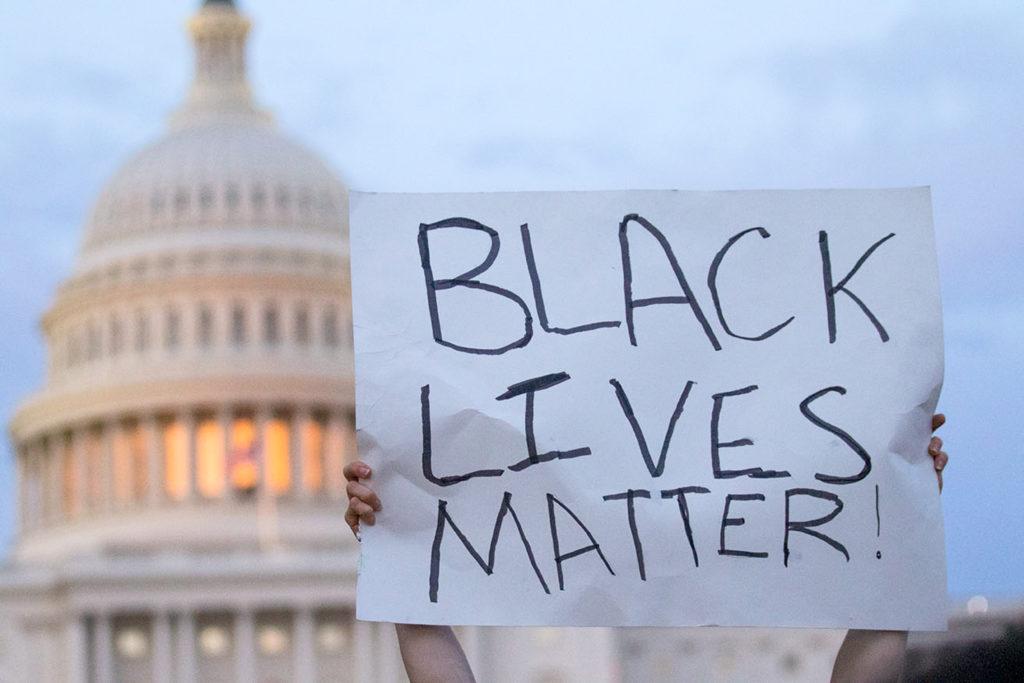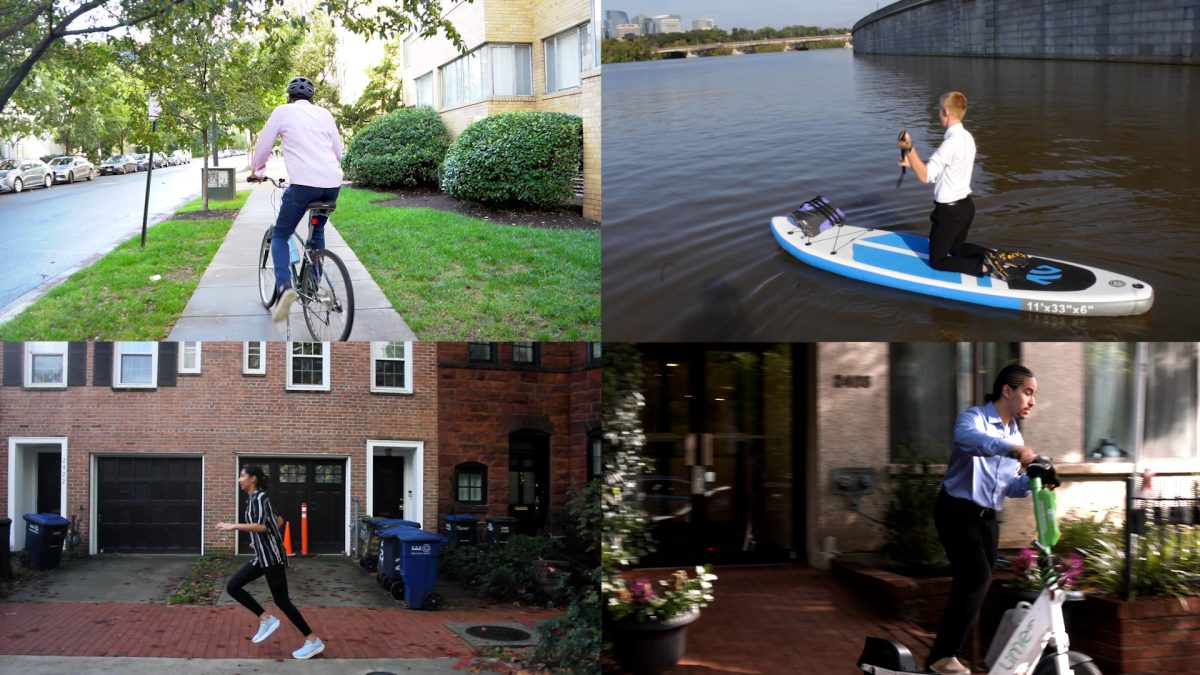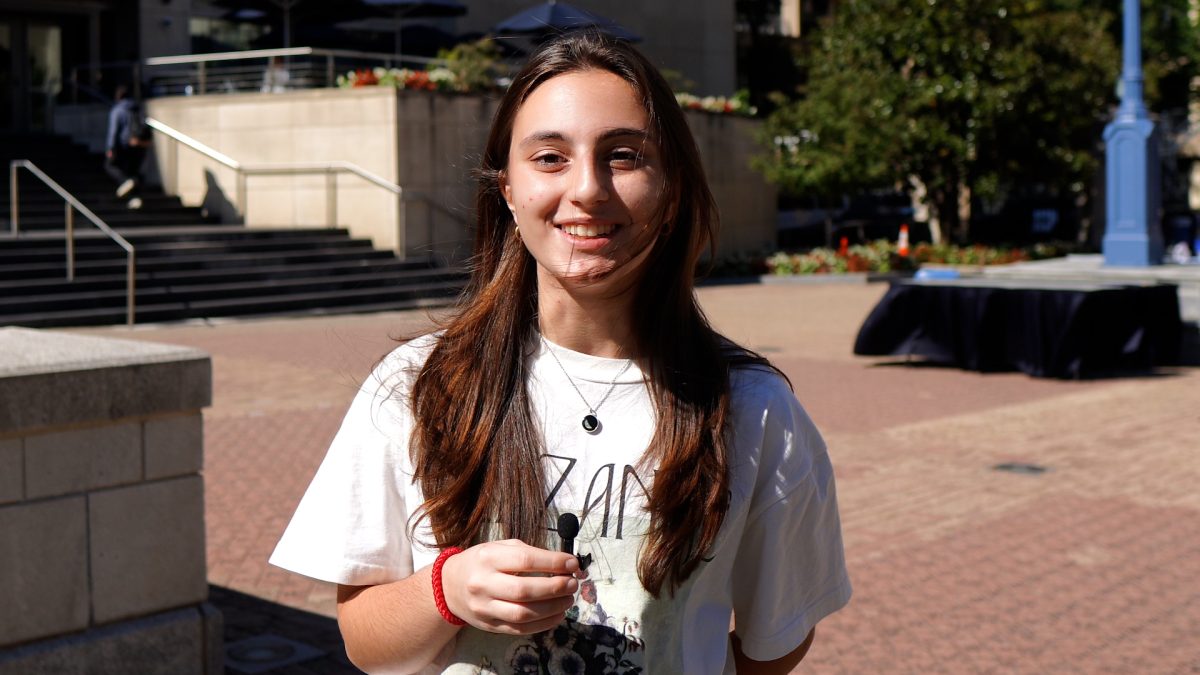The police killing of George Floyd in Minneapolis has renewed Black Lives Matter protests nationwide. But outside of national headlines, there is years’ worth of learning to unpack related to the BLM movement.
The Hatchet’s video team is exploring a different aspect of the movement and its impact on Black communities each week throughout the summer. The videos delve into wide-ranging issues related to BLM through interviews with D.C. civil rights activists, students leaders and faculty.
If you’d like to weigh in on the series with questions or ideas, please contact [email protected]
Click to watch the videos
About this video
We spoke to student leaders about how the removal of racist symbols across the country is impacting the fight for racial equality. Student leaders also spoke about the “Reconsider the names” campaign and it’s importance to GW’s aim at diversity and inclusion.
The D.C. Council approved a racial equity bill earlier this summer that will require racial equity trainings for all District employees and incorporate racial equity performance measures in annual performance plans. We spoke with student leaders and Diversity and Inclusion Education Director Jordan West on how racial equity workshops could be most effectively implemented within communities and institutions.
Thousands gathered on the National Mall Friday for the “Get your knee off our necks” commitment March, organized by the National Action Network to recognize the police killings and shootings of Black Americans and protest racial discrimination.
Nearly 3 percent — or about 9 million — of Americans identify as two or more races, according to the U.S. Census Bureau. We spoke with two students who identify as mixed-race about how they are navigating conversations about the Black Lives Matter movement with their families and friends.
The United States is the only country that does not grant residents in the national capital voting representation in the national legislature. In 2017, it was estimated that 47.1 percent of the District’s population identified as Black or African American. We spoke with student leaders and Del. Eleanor Holmes Norton, D-D.C. about how the fight for D.C. statehood is also a fight for equal voting rights.
Non-Hispanic Black Americans are hospitalized due to COVID-19 complications five times more than that of non-Hispanic White Americans, according to the Centers for Disease Control and Prevention. We spoke with student leaders and GW professors about how government policies and anti-Black discrimination in health care contribute to higher rates of COVID-19 related transmissions, hospitalizations and deaths in Black communities.
Black Lives Matter protests have taken place in more than 4,000 cities across the country, and several students have contributed to the cause in their respective hometowns. Students discussed the ways in which they advocated for the BLM movement. Some said they wrote to congress people for policy changes, while others spent time fundraising and protesting and organizing demonstrations themselves.
The Stonewall riots of 1969 in New York is widely considered to be the catalyst for the gay liberation movement and the fight for LGBTQ rights in the United States. This Pride Month, we’re exploring how that cause is connected to the Black Lives Matter movement.
The riots erupted after a scuffle between police officers and patrons of the Stonewall Inn, frequented by members of the LGBTQ community. Stormé DeLarverie, Marsha Johnson and other Black members of the LGBTQ community are credited with galvanizing the gay liberation movement by leading and participating in the riots and organizing subsequent marches and rallies.
We spoke with several student leaders about how the fight for racial equality relates to the push for LGBTQ rights and how non-Black members of the LGBTQ community can contribute to the Black Lives Matter movement this Pride Month.





